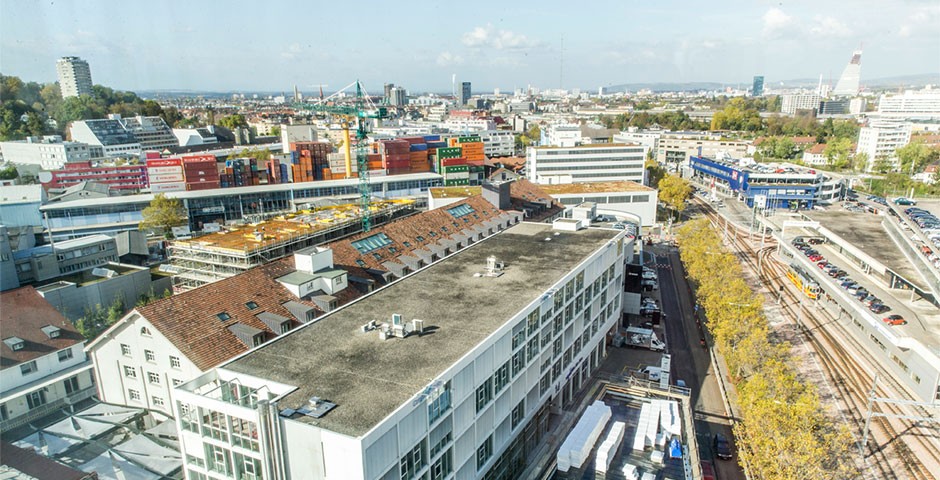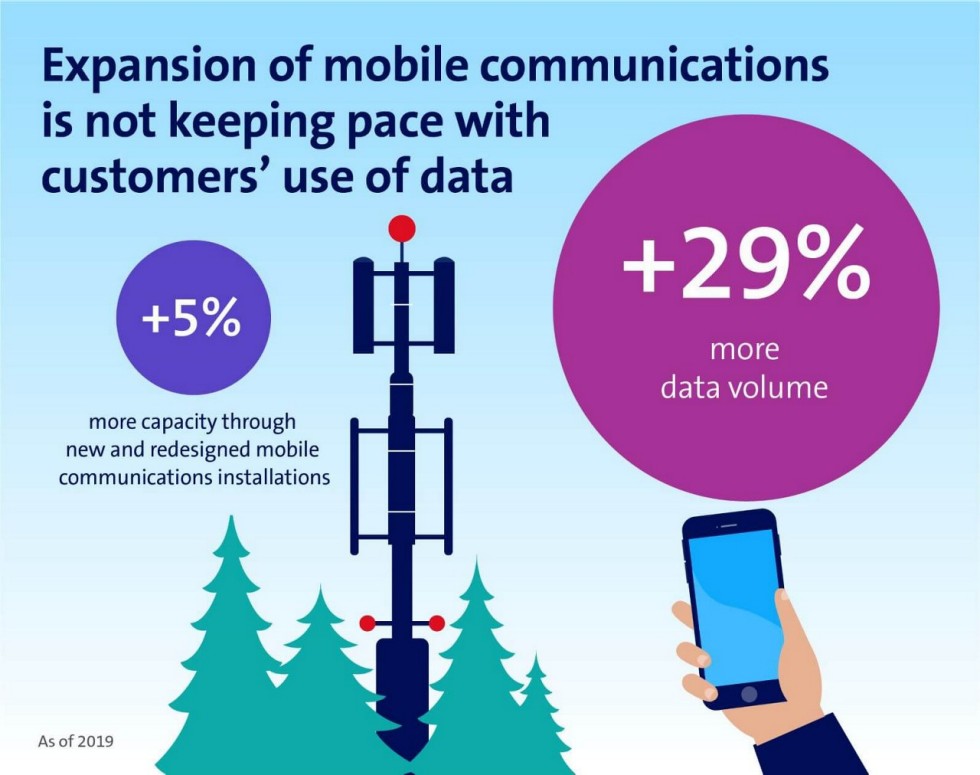
Münchenstein and Riehen have regressed to the year 2001: mobile reception is now only sufficient for telephone calls – surfing is possible outdoors at best, and even then is extremely sluggish. The reason for this is that existing mobile telephony sites in the two Basel area municipalities have since been taken down and, following a volley of objections to the new, replacement sites, a building permit could not be obtained in time. A vocal minority prevailed, and now everyone is suffering the consequences. Only scant provision is currently available for the two municipalities.
A signal is available, but only from very distant sites. Which leads to a paradoxical situation: inadequate surfing combined with extremely high radiation – because the devices used by mobile telecommunications subscribers are, quite simply, cranking up their transmitting power in order to get a signal. They are compensating for the poor reception. Every smartphone, every tablet, every mobile communication unit installed in a car can do this – which is why the radiation emitted is up to 1,000 times stronger compared to a device located near a mast.
Stopping masts increases radiation
“When it comes to mobile telecommunications, out of sight does not mean out of mind,” explains Jürg Studerus, who is responsible for the area of mobile telecommunications and society at Swisscom. “Even though there are no masts in view, that certainly doesn't mean that there are no radio waves present. After all, every active device is still transmitting – and all the more powerfully, the further away it is from a mast. The mast itself emits relatively weak levels of radiation.” Which brings us back to Riehen and Münchenstein: the new sites were blocked because of concerns about radiation, yet the opposite has been achieved.
But why do providers like Swisscom have to upgrade their masts in the first place? Why are new mobile telecommunications generations needed all of a sudden? Studerus points to a steeply rising curve: “In the last ten years, the volume of data has increased by a factor of 100. Not just because people are surfing more – but because new, user-friendly applications require even more data. Everything from mail attachments and the mobile office to websites and farmers’ drones.”
Downtime instead of download
The Swiss mobile network operators have therefore always been proactive when it comes to expansion. In other words, they have provided capacity ahead of time and have been quick to introduce new generations. But this has been virtually impossible for about two years, and Switzerland’s high-quality network is now eating into its reserves. “Customer needs increased by 30% in 2019 – but we were only able to expand by 5%”, explains Studerus. If development continues to fall behind like this, Switzerland will run into the kind of data bottleneck that we see in other countries. Jürg Studerus: “Many people are familiar with the problem abroad: the mobile may well be showing four bars for reception, but nothing is happening in the web browser.”

No more cat videos – the prospect of data rationing
Should we perhaps be made to dial down our activity, and simply spend less time online? “Who would then decide what constitutes a reasonable use of data, who gets data and when, and how much they should have? And whether a business e-mail is a better use of data than a cat video?” asks mobile communications expert Jürg Studerus. “We must not forget that a lot of innovation is directly dependent upon data flowing freely.” This benefits everyone – private users as well as the economy, for which the well-established communications infrastructure is one of the reasons why Switzerland, an otherwise expensive business location, is nevertheless an attractive one. And this is ultimately where municipalities such as Riehen and Münchenstein are at risk of more harm than just a slow network.
Latest news about Swisscom
Subscribe to News
Contact us
Address
Swisscom
Media Relations
Alte Tiefenaustrasse 6
3048 Worblaufen
Postal address:
Postfach, CH-3050 Bern
Switzerland
Contact
Tel. +41 58 221 98 04
media@swisscom.com
